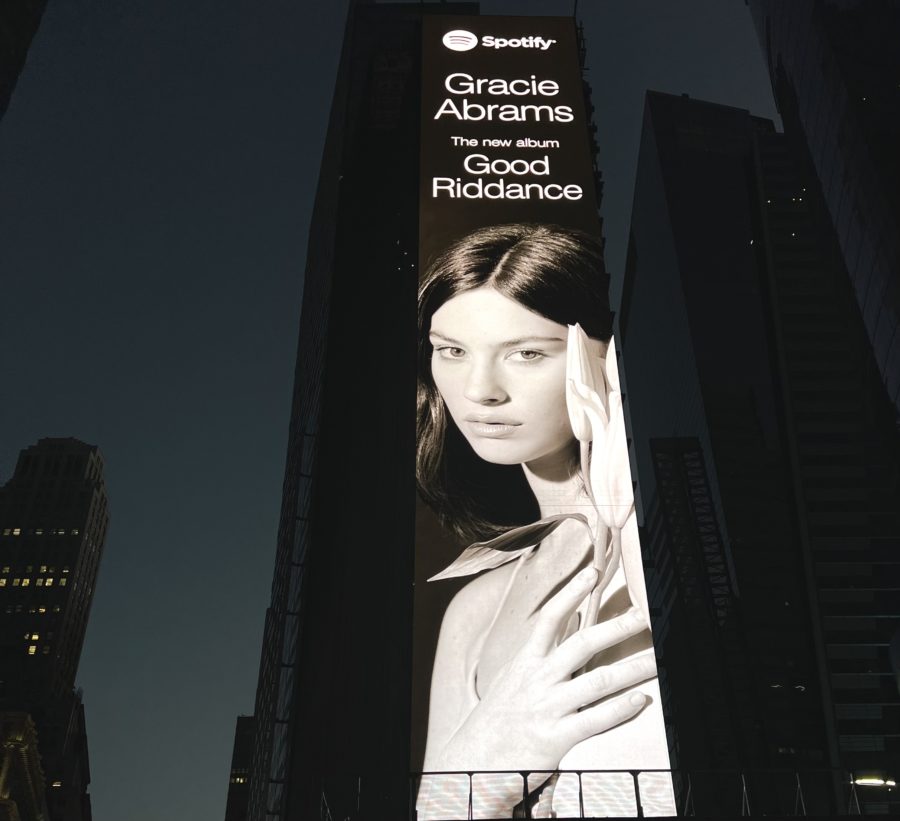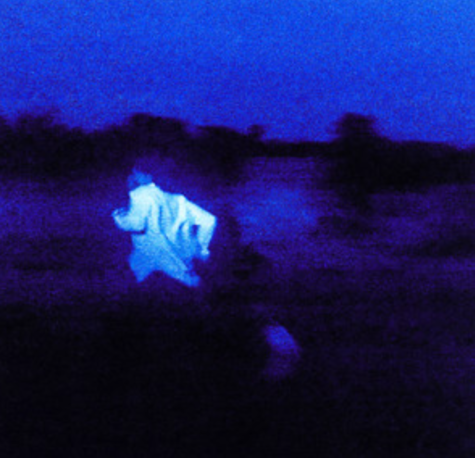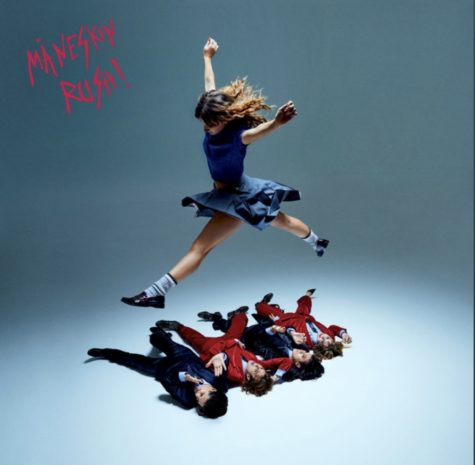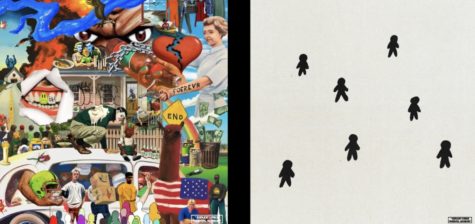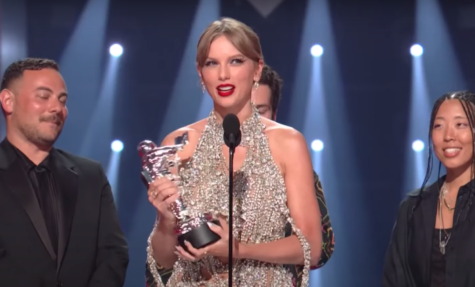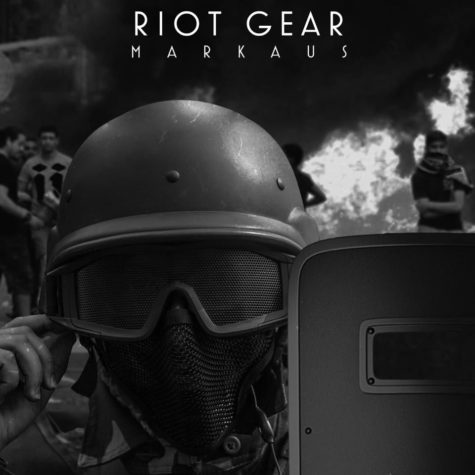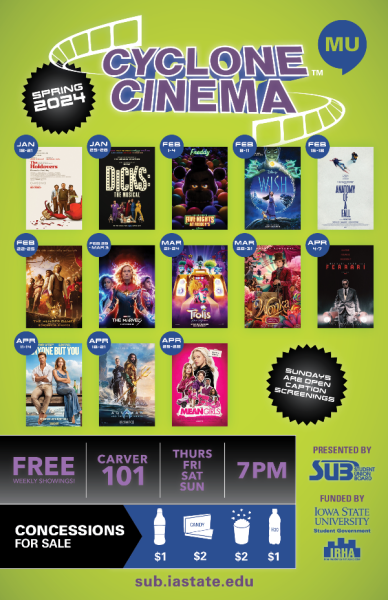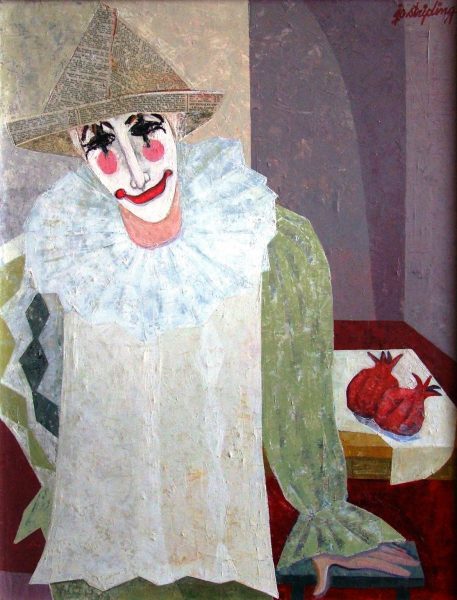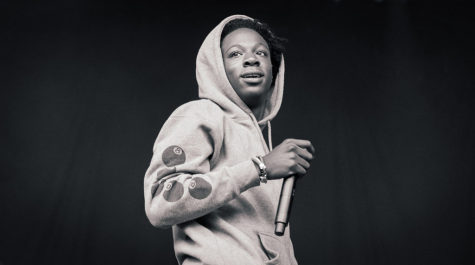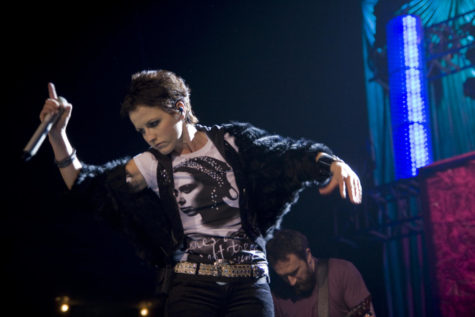Review: Gracie Abrams’ debut album sounds like a leaked personal diary
Gracie Abrams was featured on the Spotify billboard in New York City.
From the moment you start playing Gracie Abrams’ debut album, “Good Riddance,” she lets you in on her darkest moments and most vulnerable feelings.
Once you hit play, without shuffle, the first lyric you will hear is “I was bored out my mind, lost my whole appetite / When I could come to life, I didn’t.” Putting this song, “Best,” at the beginning of her album sets the tone for the next 52 minutes. The chorus repeats “I never was the best to you,” implying that Abrams has lost a love, and she blames herself for it.
This guilt paired with the soft tone of her voice makes the listener feel sympathetic, even though she was the one to do something wrong.
The entire album portrays the story of one tragic, incomplete love affair. With each song falling somewhere between folk and indie pop, the close-knit songs and intimate lyrics tend to blend together, making it feel like someone created music behind Abrams’ personal diary. As a storyteller, Abrams leaves out key pieces that the listener is able to interpret and fill in on their own.
As the album continues, it seems that it was named ironically. Losing this partner was not a good riddance for her, and instead is a massive burden and heartbreak. In “Full Machine,” she sings, “I’m a shameless caller / You’re a full machine / But won’t you answer tonight / And say somethin’ nice to me?”
Feeling at fault for the failed relationship, mixed with the inability to move on, Abrams may feel that no longer being with her is a good riddance for them. This theory is backed by the lyrics “Where I walk, you don’t follow / When I scream, you’re my echo / Will you cry if I let go?” from the song “Will you cry?”
“I should hate you,” explores Abrams’ healing process, as she goes back and forth between being better and being broken. Jumping back and forth — or more so being thrown — between these two inevitable feelings feels forced and uncomfortable, the way it does to someone experiencing heartbreak and recovery.
She may also be trying to convince herself this really is a good riddance for her. She sings “Though I’ve tried, I can’t pretend / That I don’t sit around and think about you,” during the song “This is what the drugs are for.” Unable to get them off her mind, substances are the only way she can change her mindset about who she thought was her soulmate.
It isn’t until six songs in, over halfway through the album, that Abrams shows her feelings toward another short-lived relationship with Amelie, a girl whose name is the track title. Even with a relationship that was so small many people would easily move on, Abrams became attached and couldn’t get her off her mind. A beautiful sentiment to a love that impacted her tremendously, no matter how short.
In an industry where “nepotism baby” is a common phrase, those with successful family members often have to excessively prove their talent so they are seen as more than someone who achieved fame because of privilege and connections. Daughter of filmmaker J.J. Abrams, Gracie Abrams shows her individual storytelling and songwriting talents through this album.
What some songs may lack in vocal emotion is recovered by hard-hitting lyrics. Someone looking for study background music, something to cry to or a new indie artist to listen to will benefit from “Good Riddance.”
Rating: 8/10
Favorites: Will you cry?, Full machine, The blue, Best
Dislikes: I know it won’t work, Difficult
Your donation will support the student journalists of the Iowa State Daily. Your contribution will allow us to purchase equipment, send our student journalists to conferences and off-set their cost of living so they can continue to do best-in-the-nation work at the Iowa State Daily.

